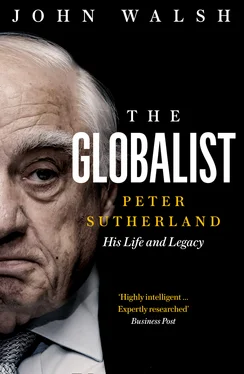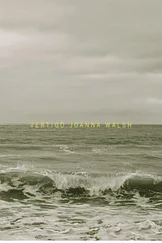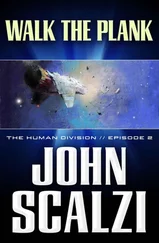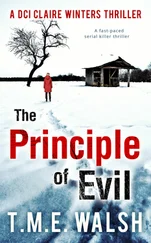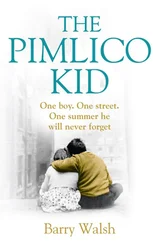Tony Spollen met Sutherland on his first day at Gonzaga in 1954, and the pair remained lifelong friends, although their paths would cross in much more controversial circumstances in the 1990s. ‘We became really good pals. I used to spend six weeks in the summer in his house in Monkstown. The Sutherlands would have been very wealthy – so from an early age, he would have been used to privilege. The family had a housekeeper called Polly. His mother was an extremely nice woman, Barbara. He was always used to having the best.’
Sutherland’s typical summer would have revolved around Monkstown tennis club. He was a good, competitive tennis player. Another early childhood friend was John Arrigo, a neighbour in Monkstown. They too would remain lifelong friends. Sutherland had many passions in life, but in his early years nothing could compete with rugby. ‘Myself and Peter became very good friends as we were both very keen on rugby. We were second row together initially and we then moved to front row with John Sisk in the middle,’ says Colm Barrington. Underlining the rarefied social strata of Gonzaga, John Sisk was a member of the Sisk family, the founders of one of Ireland’s largest construction groups.
Tony Spollen says that one of his earliest jobs was to get Sutherland elected captain of the Gonzaga rugby team, which involved extensive lobbying of the other players. Sutherland once secured a trial for the Leinster schools rugby team. Impatience got the better of him and he ordered Spollen to ring the sports desk of the Irish Times newspaper to check if he had made the team. He hadn’t. ‘He was never heavily into the academics. He did his homework, but just about. His two main interests were debating, he was a terrific speaker, and rugby,’ says Spollen.
However, Gonzaga was not a good rugby school and it often had trouble putting fifteen players on the pitch. Adds Barrington: ‘From a rugby point of view we got beaten a lot. We weren’t allowed to play against any Protestant schools, who in rugby terms would have been more our size and smaller. Fr O’Connor wouldn’t allow us to play against Protestant schools because of the Archbishop McQuaid philosophy at the time.’ Fr O’Connor was the rector, while John Charles McQuaid, the Catholic archbishop of Dublin between 1940 and 1972, ensured that the church kept a vice-like grip on the state – in other words, Gonzaga were banned from playing against teams from Protestant schools. It was something of a miracle that on 5 March 2019, Gonzaga won the Leinster senior cup semi-final for the first time in the school’s history by beating Clongowes Wood College 22–19. What’s more, loose head prop Henry Godson, who scored three tries, is the son of Rory Godson, a close friend of Sutherland’s.
Sutherland developed a lifelong relationship with Gonzaga. Indeed, the school’s library is named in his honour, in recognition of one of the many generous donations he made over the years. Sutherland’s ability to maintain lifelong relationships was one of his more striking characteristics. At his funeral mass on 11 January 2018, the church was filled with former friends from school, university and all the different strands of his storied career. Garrett Sheehan, a member of Sutherland’s class who would also pursue a career in law, eventually becoming a High Court judge, gave the eulogy at Sutherland’s funeral. ‘Peter was great fun at school. He had a mischievous side but he was a natural leader. He was one of the only people to play [rugby] for the seniors and juniors in the same year. He was very good at keeping in touch with people. For example, no matter where he was or how busy he was he would always come back for UCD rugby dinner.’
Fr Noel Barber, the principal celebrant at Sutherland’s funeral mass, took up a position at Gonzaga in 1961. Although he never taught Sutherland, the two of them subsequently struck up a friendship that again would endure over the subsequent decades, and Barber was one of the last people to see Sutherland before he passed away. ‘I went to Gongaza when Peter was in fourth year. I trained a rugby team in sixth year when Peter was captain. As a young boy, he was chubby. Academically he wasn’t stellar, he was a late developer. There were some brilliant fellows in his class but he wouldn’t have been in that category in school. The most brilliant fellow in his class was Leslie Webb, who died in a drowning accident in India during VSO [Voluntary Service Overseas] straight after school. Peter was not in his category yet, but he always had a spark that showed up in debating society with Fr Veale.’
Fr Barber recounted a story from Sutherland’s time at Gonzaga. ‘A teacher overheard Peter and a pal discussing the strength and weaknesses of the priests whose masses they served. Peter with certainty said, “I like to serve Fr White.”’(Fr White was the prefect of studies.) ‘His companion retorted – it was in the days of corporal punishment – “But he biffs us.” Peter countered pragmatically, “What are you talking about? He has to do it. That is his job and he does a good job.”’
According to Barber, the same Fr White spotted something in Peter which eluded others at that stage. When a teacher remarked to him that young Sutherland was not doing so well, Fr White responded with uncharacteristic sharpness that when young Sutherland saw something he wanted he would go for it and get it. ‘I overheard that conversation and I watched with pleasure how over the years the prophecy of the shrewd Fr White was fulfilled.’
All who knew him at Gonzaga say that it was Fr Joe Veale who left an indelible mark on Sutherland. ‘Joe was absolutely inspirational. He taught us how to write. He established the debating society at Gonzaga. Peter was an outstanding debater from a young age. He made an immediate impact when he joined in fourth class,’ says Sheehan. The debating society would become another passion in Sutherland’s life and lead him to his career in law. Barrington remembers that Fr Veale was always ahead of his time in terms of openness. ‘He encouraged us to read The Catcher in the Rye when everybody else was saying it should be banned.’ Sheehan agrees that Fr Veale made a huge impression on Peter. ‘Fr Joe was absolutely passionate about the Vatican council. I wasn’t surprised to hear Peter did what he did with the Vatican because of Joe.’ In 2011 Sutherland would become an adviser to the Vatican on its financial affairs. Sutherland is estimated to have made £120 million from Goldman Sachs’ flotation in 1999. According to Sheehan, one of the first things he did with the proceeds was to buy Fr Veale an around-the-world travel ticket.
According to his former classmates, even when young Sutherland did not lack confidence and could add a self-serving gloss to events that were not necessarily merited by the facts. Sheehan recalls one particular week in sixth year when Fr Veale was handing back the boys’ weekly essays after they had been marked. Sutherland had written his essay on Ernest Hemingway, the US novelist, who had died three years previously. ‘Joe’s comment was that there was too much hairy-chested sentimentality, which was meant as a criticism. But Peter took it as a compliment and proudly sent it around the class to show what a great writer he was.’
Fr Veale died in 2002. Described by friends and former students as a highly intelligent and complex man, he shaped Sutherland during his formative years probably more than anyone else apart from his parents. An appreciation which appeared in the Irish Times shortly after Fr Veale’s death referenced an article he had written two years before, in which he addressed in very raw terms the life of a cleric. He described the ‘private pain … loneliness … isolation … the desert in the heart … self-hatred … rage … having no say in the disposition of one’s own life … the longing for human contact … the ache for tenderness and gentleness.’[1] According to the newspaper, it was an ‘outpouring of anger at the authoritarian, narrow-minded and philistine culture of the Church’s leadership, both in Ireland and worldwide, and a cry too against the smug smile from the layman’s armchair’.[2] He wanted people to ask why the scandals of clerical child-abuse had happened. What was the desolation that might explain, but not excuse, the depravity? This extraordinary article (in Doctrine and Life ) appeared and disappeared with hardly a comment. His act of courage, the last act of his career, his ‘J’Accuse’, had been countered in an Irish way – by silence.
Читать дальше
